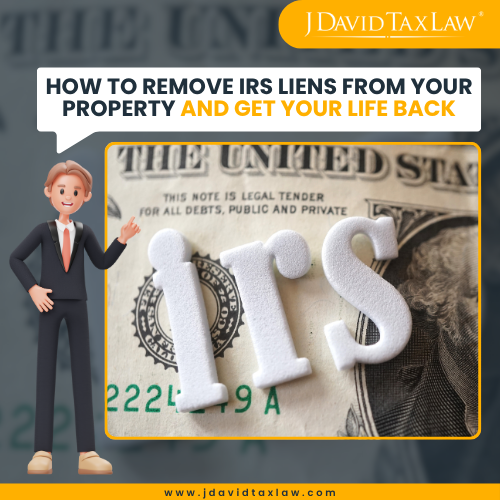Innocent Spouse relief
Secure relief from married joint tax liabilities through our Innocent spouse relief service.
Find Out If You Qualify for Tax Relief in 4 Easy Steps!
Check Your Eligibility for Tax Settlement Today!
What is Innocent Spouse relief?
IRS Innocent Spouse Relief protects you from being unfairly charged for tax mistakes made by your spouse on a joint return. You have three options: Standard Innocent Spouse Relief, Separation of Liability Relief, and Equitable Relief, each tailored to different situations.
Acting quickly to secure the right relief can help avoid serious consequences like wage garnishment, tax levies, and federal liens, ensuring your finances are protected.

Five-Star Rated Spouse Relief Services from The Nations Top Tax Attorneys
• Call today for a free tax consultation and learn how our Innocent Spouse Relief can free you from tax, penalties, and interest due to errors or omissions on joint returns caused by your spouse. Secure your financial relief now!
• We conduct a detailed assessment of your joint tax return to evaluate your eligibility for Innocent Spouse Relief. Our service focuses on uncovering erroneous items and omissions caused by your spouse. Take advantage of our four decades of collective experience in the tax debt relief industry, offering top-notch support for your innocent spouse relief application.
• Get professional assistance with the meticulous preparation of the innocent spouse form 8857, addressing Innocent Spouse Relief, Separation of Liability Relief, and IRS Equitable Relief. With our five-star-rated service, we ensure every detail is perfectly in place, doubling your chances of acceptance.
• Whether married or divorced, we’ll protect you from the financial missteps of your spouse. With our professional tax relief services, you can strategically use the timing of your marriage or divorce to maximize your tax benefits. Take action now to safeguard your financial future!
Our tax attorneys specialize in turning your Innocent Spouse claim into real penalty relief victories.
Eligibility Requirements for Spouse Relief
Understanding the eligibility requirements for Innocent Spouse Relief is essential for anyone facing unexpected tax liabilities due to errors on a joint tax return. This IRS provision offers protection for those who, through no fault of their own, find themselves saddled with extra taxes, penalties, and interest.
To qualify, you must prove that you were unaware of the tax understatement caused by your spouse’s erroneous items. The following are specific eligibility requirements that must be met to qualify for this IRS Innocent Spouse Relief program:
Filing Status and Tax Return Conditions
• The first requirement is that you must have filed a joint tax return with your spouse. This relief is specifically designed for those who share tax responsibilities on the same return.
• It’s important to file for Innocent Spouse Relief timely—specifically, within two years from when the IRS begins taking collection action on the understatement.
Knowledge and Circumstances of the Innocent Spouse
• The innocent spouse must demonstrate that they were unaware of the understatement and had no reason to know.
• Factors such as economic hardship, lack of financial acumen, history of abuse, or a forged signature are considered to assess the fairness of holding the innocent spouse liable.
Additional Considerations
• Eligibility can be affected by any financial benefits you may have received from your spouse’s incorrect tax filings. This includes both direct financial gains (such as increased spending money) and indirect benefits (such as paying off debt with funds from understated taxes).
• When assessing eligibility, the nature of any financial benefits received is considered. Temporary benefits or those used towards essential family expenses often carry different weight compared to long-term investments or luxury purchases.
• Your marital status during the time the tax issues arose and when you apply for relief is very important. Being physically or legally separated or divorced could support your claim that you were unaware of the financial discrepancies.
• Providing proof of the timing and legality of your separation or divorce is essential. Documents that validate your claim include legal separation papers and divorce decrees, which can help establish a timeline that supports your lack of involvement in the tax inaccuracies.
• If you continued to live with your spouse during and after the period the tax errors were made, it might complicate your claim. In contrast, proof of living apart can help establish your independence and bolster your case for not knowing about the tax issues.
Did you know there are four types of innocent spouse relief?

How a Reliable Tax Service Simplifies Tax Debt

Financial Hardship Analysis
Our expert tax attorneys review your total tax debt, including penalties and interest, to develop personalized resolution strategies.


Streamlined Application Process
Our certified team of tax attorneys assists in preparing IRS Form 656-B, IRS Form 433-A (for individuals) or Form 433-B (for businesses)

Negotiation with the IRS
The next step is engaging in negotiation with the IRS to secure the most favorable terms for your tax resolution.

Legal Professional Support
Our expert tax debt attorneys provide rigorous support throughout your application process.

Free Initial Consultation for Spouse Relief
We Start with free initial consultation to explore your options for Innocent Spouse Relief.



Submission of Innocent Spouse Form 8857
Our tax law firm provides a straightforward and efficient process to help you secure IRS Innocent Spouse Relief with ease and confidence.

Our Tax Attorneys: Your Experts in IRS Negotiations.
Once we prepare and submit Form 8857, we actively engage with the IRS, presenting a compelling case that highlights why holding you responsible would be unjust.



Ensuring IRS Compliance with Expert Legal Guidance
Our tax specialists assist in accurately addressing any compliance issues, ensuring that all tax filings are correct and timely, and that any outstanding obligations are properly managed.

We offer expert relief to help you stop tax debts caused by your significant other and reclaim your financial stability.
Why Do You Need a Tax Attorney for Innocent Spouse Relief?
When seeking Innocent Spouse Relief, having a tax specialist is very important due to the intricate nature of tax laws and IRS procedures. A tax attorney ensures that your application is not only accurately completed but also robustly defended, addressing key technicalities that could determine the outcome of your case. At J. David Tax Law, our A+ rated tax attorneys ensure strict compliance with IRC Section 6015, which governs Innocent Spouse Relief.
This includes demonstrating that you meet specific criteria, such as proving you had no knowledge of the understatement of taxes caused by your spouse, which is often complex and requires a deep understanding of tax law nuances.
Our tax debt attorneys can successfully navigate the critical timelines stipulated by the IRS, ensuring that Form 8857 is filed within the two-year window after the IRS has begun collection actions, a requirement that many applicants overlook. Moreover, in cases where the IRS challenges your innocent spouse claim, having a tax attorney with expertise in IRS negotiations and appeals is invaluable.
We can handle communications, marshal evidence, and argue effectively on your behalf, significantly increasing your chances of success. Our IRS tax debt attorneys will assess which type of relief you are eligible for and advocate for the most favorable terms based on your unique circumstances.
In essence, a tax attorney does more than fill out paperwork; they provide strategic advice, detailed planning, and dedicated advocacy to ensure that you are not unjustly penalized for someone else’s mistakes, safeguarding your financial future.
Discover the 5-star experience that keeps our clients coming back—check the reviews
What Actions Can You Take If You Don’t Qualify for Innocent Spouse Relief?
If you do not qualify for Innocent Spouse Relief, you may still have other options to avoid or mitigate the tax liabilities arising from a spouse’s tax issues. Here are a few alternatives to consider:
Equitable Relief IRS
Separation of Liability Relief
Injured Spouse Relief
Appeal the Decision
Innocent Spouse Relief is a provision by the IRS that allows a taxpayer to be relieved from the responsibility of paying additional tax if their spouse or former spouse improperly reported or omitted items on their joint tax return. This relief is granted when the innocent spouse can demonstrate that they were unaware of the errors and did not benefit from the underreported or omitted income. Find out if you qualify for Innocent Spouse Relief and protect yourself from unexpected tax debt.
To qualify for Innocent Spouse Relief, you must meet certain criteria set by the IRS. These include filing a joint return with understated tax due to your spouse’s errors, proving you were unaware of the mistake, and demonstrating that it would be unfair to hold you responsible. Additionally, you must request relief within two years of the IRS attempting to collect the tax. Click here to Learn more about the full eligibility requirements.
The difference between an Injured Spouse and an Innocent Spouse lies in their circumstances. An Injured Spouse seeks to recover their share of a tax refund that was used to pay off their spouse’s debts, like child support or student loans. Meanwhile, an Innocent Spouse aims to avoid liability for additional taxes due to their spouse’s errors or omissions on a joint tax return. Our tax lawyers near you can assist with both forms of relief—contact us to get started!
Additional Resources

- Tax Debt
The Truth About IRS Collection Notices and What to Do Next

- Tax Relief
Can a Tax Attorney Negotiate with the IRS?

- Tax Debt
How to Deal with State Tax Debt While Handling IRS Issues

- Tax Debt
How to Remove IRS Liens from Your Property and Get Your Life Back

- Tax Debt
Pennsylvania State vs. IRS Tax Debt Guide

- Tax Debt
Facing New York State Tax Debt? How to Resolve It With Legal Help


